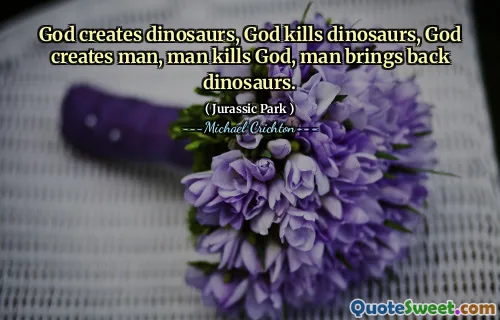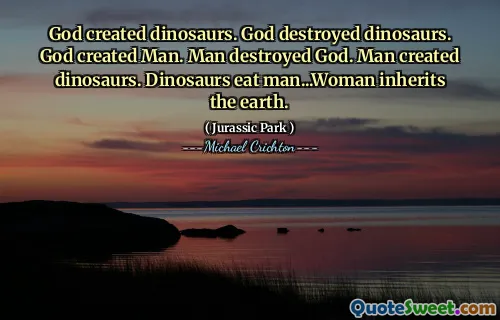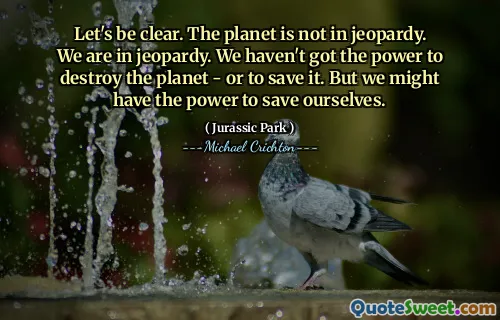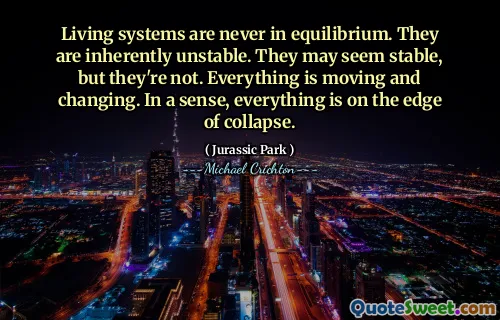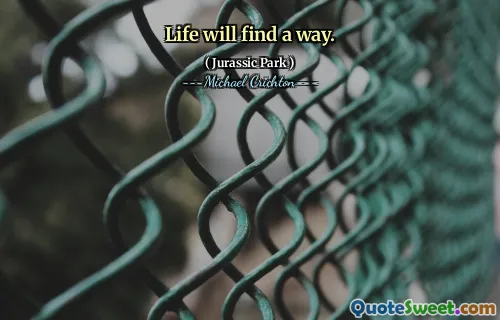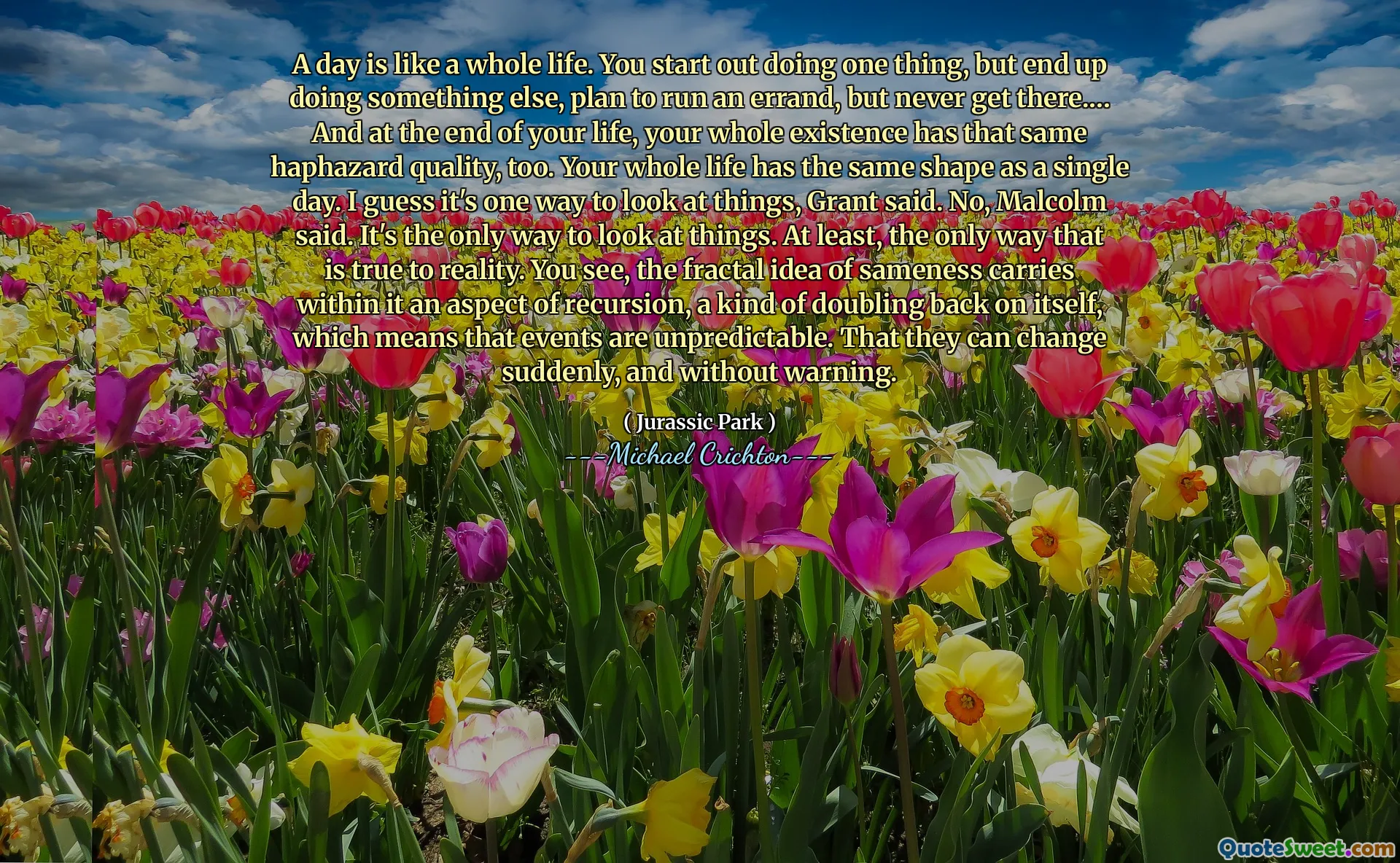
A day is like a whole life. You start out doing one thing, but end up doing something else, plan to run an errand, but never get there.… And at the end of your life, your whole existence has that same haphazard quality, too. Your whole life has the same shape as a single day. I guess it's one way to look at things, Grant said. No, Malcolm said. It's the only way to look at things. At least, the only way that is true to reality. You see, the fractal idea of sameness carries within it an aspect of recursion, a kind of doubling back on itself, which means that events are unpredictable. That they can change suddenly, and without warning.
This passage reflects on the unpredictable nature of both a single day and life as a whole. The characters discuss how daily activities can change unexpectedly, mirroring the broader experiences of life. Just like a day can start with one intention but take an unforeseen turn, life unfolds in a similarly haphazard manner. This perspective suggests that the structure of a day serves as a microcosm for the entirety of existence.
Malcolm emphasizes that recognizing this unpredictability is essential to understanding reality. The concept of fractals implies that patterns repeat on different scales, leading to unforeseen events. Embracing this notion allows individuals to appreciate the complexity of both daily life and life in general, highlighting the significance of being adaptable to sudden changes.
